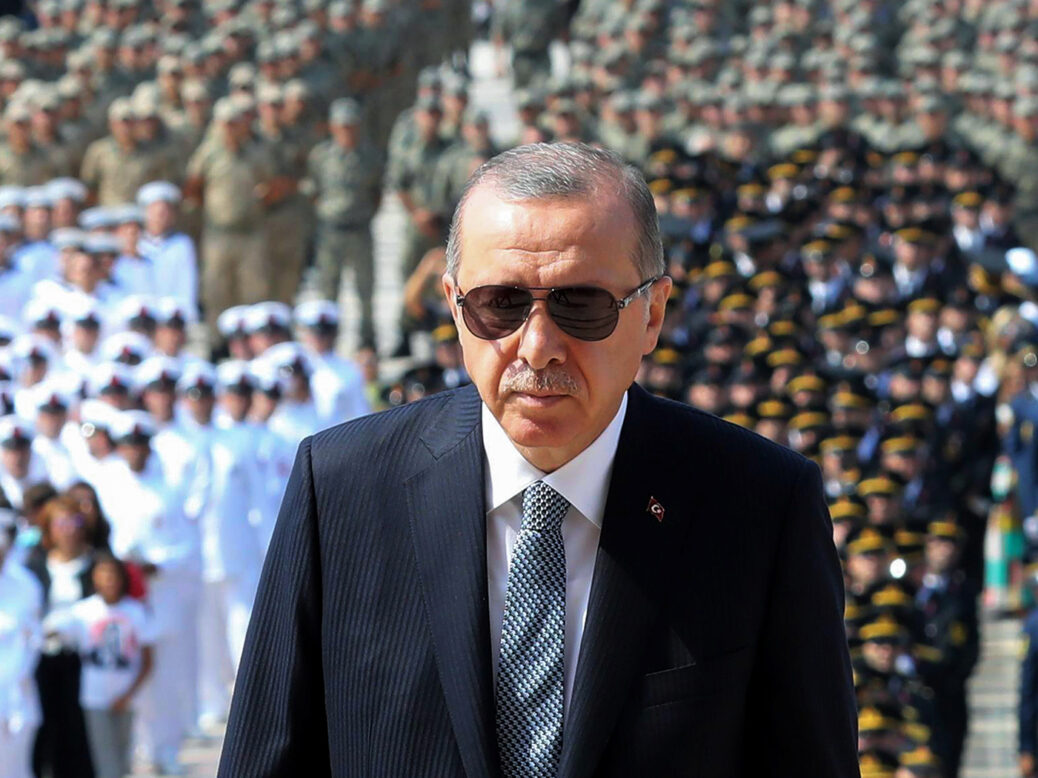
Turkey is in crisis and Recep Tayyip Erdoğan is leaning into it. On 23 October, in a public speech, the authoritarian president described ten Western ambassadors – including those from the US, France and Germany – as “persona non grata”.
Erdoğan claimed that the move was a response to the ambassadors’ joint call for the release of Turkish businessman and philanthropist Osman Kavala, who has been in prison since 2017 on the charge of seeking to overthrow the government. Yet Kavala has never been convicted of a crime and the European Court of Human Rights (ECHR) – of which Turkey is a member – has been calling for his release for two years.
Though Erdoğan has already walked back on his threat to expel the diplomats, his hostility signals a new low for Turkey’s already fragile relationships with several Western nations. The pretence that Turkey still aspires to join the EU is wearing increasingly thin. Nor is Brussels at all enthusiastic at the prospect of Turkish membership.
On 19 October, the European Commission released a report on Turkey’s proposed membership. It found that the required democratic reforms had never been implemented by Ankara, under the leadership of Erdoğan’s Justice and Development Party (AKP), and the road to membership was at a “standstill”. The Turkish president has also clashed with Washington in recent years, including over Ankara’s increasingly cosy ties with Russia.
What’s more, Erdoğan lashed out at foreign allies against the backdrop of a domestic crisis that’s been escalating since March this year. Turkey’s currency, the lira, has plunged in value – worsened by the Erdoğan-backed policy of slashing interest rates. Inflation has surged, hitting households across the country.
With Turkey’s economic crisis reaching fever pitch, it might seem baffling that Erdoğan has turned to talk of expelling ambassadors, a move that will isolate the country internationally. But, in fact, it’s a move typical of authoritarian rulers, who despite revelling in the term “strongman”, find great comfort – and, often, success – in positioning themselves as the victim.
Erdoğan’s attempt to deflect from Turkey’s economic crisis by creating an international one himself has been taken from a well-thumbed playbook. Threatening to scorch the Earth when it comes to diplomatic relations with Western allies risks isolating Turkey, but Erdoğan clearly believes it can help bolster his support at home.
Predictably, parts of the Turkish establishment have taken up Erdoğan’s cause, claiming that the country is under threat of foreign forces. Yet there are deepening signs of discontent with the AKP. Recent opinion polls have shown that support for Erdoğan has slumped since 2018, down from 42.6 per cent to little more than 30 per cent. Business groups, including the powerful Turkish Industry and Business Association (Tüsiad), has issued a report in recent days calling for more “cautious” monetary policies – a clear criticism of Erdoğan’s handling of the currency crisis.
Opposition parties, sensing that momentum is building against the president, have vowed to unite behind a single candidate in the next election. It is a strategy that allowed them to chip away at Erdoğan’s base in 2019’s local elections, and also one that has become increasingly frequent in nations under threat of democratic backsliding, including Hungary.
While the diplomatic crisis has been averted for now, in the coming days, a few things will be telling. First, how much Western allies will engage with Erdoğan at the G20 meeting in Rome on 30 October. The Turkish president could well find himself frozen out on the sidelines if EU and US leaders are wary of an increasingly unpredictable ally. Secondly, if and when international groups and foreign allies continue to push for Kavala’s release, whether Erdoğan once again lashes out.
Finally, and likely most concerning for Erdoğan, is whether Turkey’s opposition parties can continue to get traction off the back of the president’s – and the lira’s – volatility.
[See also: In Hungary, a united opposition faces an unhinged, Orbán-friendly smear campaign]





